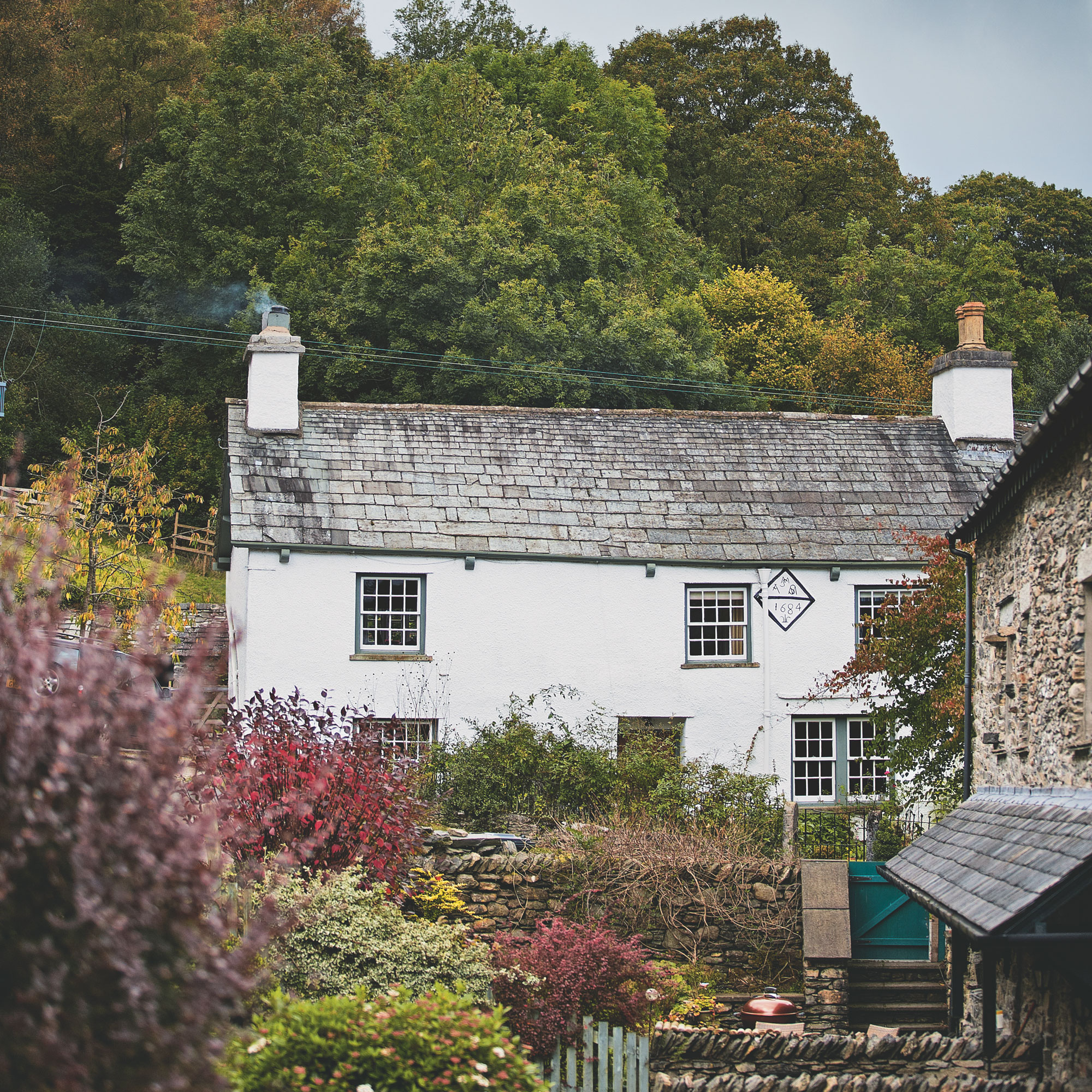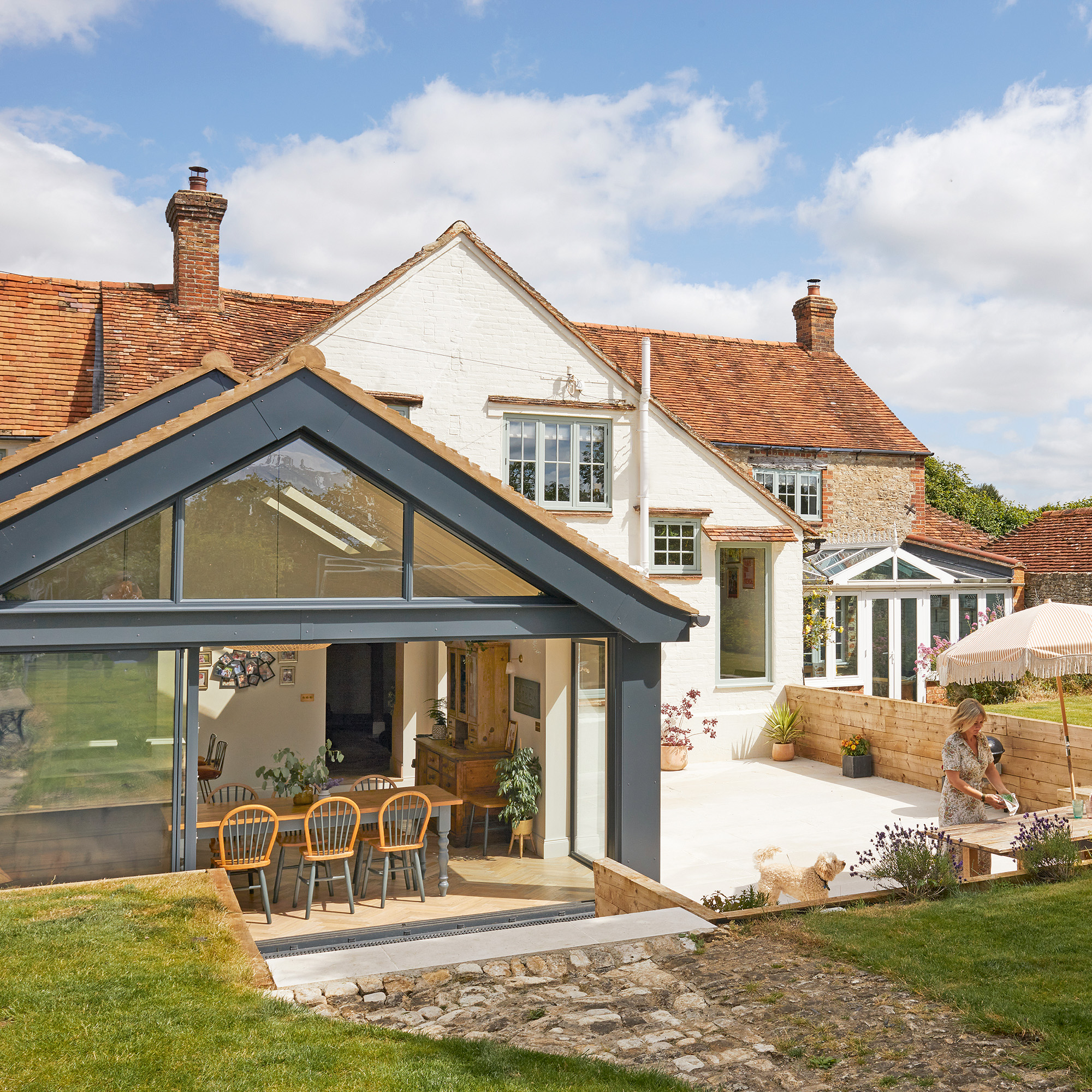What is a bridging loan and how can it help you buy first, sell later?
You’ve found your perfect home, but you need to act fast and you haven’t yet sold your current property. Could a bridging loan be the answer?
A bridging loan can help you secure your dream home before you’ve sold your current one, but it’s not a route to go down without some careful thought.
With house prices at record levels, and demand often outstripping supply, house buyers are having to act fast to buy the house they want.
This is where a bridging loan could help prospective buyers to buy first, sell later - but how does a bridging loan actually work and is it a good idea?
We explain everything you need to know.
What is a bridging loan?
Bridging loans are short-term loans that enable you to buy a new property before you’ve been able to sell the one you need to fund the purchase. The loan literally ‘bridges’ the two transactions.
This ‘chain-breaking’ could give you the edge if you’ve finally found a home that ticks all your boxes. It means you don’t have to miss out even if selling your home is taking some time.
Moreover, Gavin Diamond, director of bridging at United Trust Bank says bridging loans aren’t just about moving up the property ladder. 'Many of our customers use bridging to downsize or move into retirement homes. It removes the stress of tying in the sale of their existing home with the purchase of their new one.'
Get the Ideal Home Newsletter
Sign up to our newsletter for style and decor inspiration, house makeovers, project advice and more.
'This can be particularly attractive to older customers who can find a property, buy it and then move in at their leisure before marketing their old home,' he adds.
Bridging loans can also be helpful if you are buying a property at auction and need to act fast or are taking on a major renovation.
Diamond explains: “Sometimes the property to be purchased won’t initially be mortgageable because it’s considered uninhabitable by the lender - perhaps because it doesn’t have a working kitchen or bathroom.”
“A bridging lender can facilitate the purchase, and allow the borrower to undertake the required works before it can be refinanced onto a longer-term mortgage.”
On paper, this capacity to buy now, sell later could take a lot of the stress and hassle out of moving home – much of which comes from the requirement to tie up multiple transactions.

How do bridging loans work?
Before you consider a bridging loan, it’s vital you understand how they work and the risks involved.
There are two main types of bridging loan - ‘open’ and ‘closed’ loans.
An open bridging loan is one where the repayment date of the loan has not been agreed. Although there may still be a maximum term - for example, 12 months - the borrower has the flexibility to repay the money at their own pace.
This can be helpful, for example, with a renovation project where you don’t know how long works will take to complete.
Closed bridging loans are those with a known end. You might use this type of bridging loan if you have sold your current home but just haven’t managed to tie up completion dates.
Bridging loans can be set up on a short-term basis but typically last up to a year.
Loans are repaid on an interest-only basis, but how that interest is paid can vary. Interest can either be paid each month or it can be rolled up and repaid with the capital at the end of the term. A third option is retained interest where the lender calculates your interest costs and adds that to your loan.
How much can I borrow with a bridging loan?
Although some lenders can lend as much as £10m, how much you can borrow will depend on the amount of equity you have in your current property. The maximum loan to value is likely to be in the region of 75%.
Funds should be released quickly, often within as little as 24-48 hours. This is why they’re popular when speed is important, for example if you’re buying at auction.
However, all that speed and flexibility comes with a price.
Interest rates are likely to be higher than with residential mortgages, and will roll up if you don’t make monthly repayments. The longer you take to repay the loan, the more expensive it becomes.
How much do bridging loans cost?

Diamond says interest rates are typically between 5.5% and 12% a year.
Open bridging loans are likely to cost more than closed bridging loans because more flexibility is required.
And, as with any secured loan, your property is at risk if you struggle with repayments.
There will also be arrangement fees to pay, which can be as much as 2%, as well as exit fees if you repay the loan early.
This means you need to think very carefully about whether you are prepared to pay these additional costs to get your hands on that new home.
Bear in mind that if you’ve got a mortgage on the property you want to sell, you’ll still be paying that too.
Bridging loans pros and cons:
Pros:
- Fast access to large loans
- Can help you secure your new home without selling your current one
- Flexible repayments
- Enables you to purchase properties that cannot be mortgaged in their current state
Cons:
- Interest rates are higher than residential mortgages
- The loan may be in addition to an existing mortgage
- Fees can be substantial
- The loan is secured, placing your home at risk if you cannot make repayments
Are bridging loans a good idea?
The costs and risks associated with bridging make Ray Boulger, senior technical manager at mortgage broker John Charcol, think twice about recommending these loans.
While there may be cases where bridging might be a practical solution to some home buying dilemmas, he suggests it shouldn’t be regarded as a mainstream fix to the challenges of moving house.
'In the current market, in particular, I would question anyone thinking of doing an open bridge. It’s a seller’s market so why haven’t you sold your property? It’s probably because the price isn’t right.'
Although lenders will refinance bridging loans when required, the penalties can be onerous if you don’t repay it within the initial time frame. The interest will carry on growing too.
Boulger says: 'In the first instance, always try and tie up transactions if you can.'
If that’s not an option, Boulger says it’s important to get independent advice before you go down the bridging route. This should be from a mortgage broker that doesn’t focus solely on bridging finance who is able to consider all your options.
'There may be an alternative – we had a case recently where a borrower came in asking about a bridge, but because he had a good income, we were able to help him with a standard mortgage which worked out far cheaper.'
If you have managed to sell your home but simply haven’t completed you may also be able to negotiate with your seller.
Some buyers may also choose to sell their home and rent before they start looking for a new one. This means that when you do find the perfect home, you can act fast without the pressure to sell.
-
 I failed my no-buy month because of this Primark tableware collection - it looks so much more expensive than it is
I failed my no-buy month because of this Primark tableware collection - it looks so much more expensive than it isMy tablescape has never looked better - without taking a hit to my budget
By Holly Cockburn
-
 This is the best place to plant peonies for gorgeous flowers - experts say it’s the difference between stunted growth and beautiful blooms
This is the best place to plant peonies for gorgeous flowers - experts say it’s the difference between stunted growth and beautiful bloomsIf you want an abundance of this fluffy, pink, fragrant bloom in your garden then getting the placement right is everything
By Kezia Reynolds
-
 Moving from the city to the country transformed this family's life
Moving from the city to the country transformed this family's lifeA sympathetic restoration and a modern extension have given this period property a new start as a practical family home
By Louise O'Bryan
-
 You can claim back over £300 a year from HMRC if you work from home - here’s how to check if you’re eligible
You can claim back over £300 a year from HMRC if you work from home - here’s how to check if you’re eligibleWhen it comes to saving, every little helps
By Kezia Reynolds
-
 Experts have revealed the best day to renew your home insurance policy - you’ll want to do it sooner rather than later
Experts have revealed the best day to renew your home insurance policy - you’ll want to do it sooner rather than laterDon't leave this task at the bottom of your to do list
By Kezia Reynolds
-
 Is a variable rate mortgage ever a good idea? Experts weigh in
Is a variable rate mortgage ever a good idea? Experts weigh inOur money expert explains what a variable rate mortgage is, who they can be good for, and the pros and cons of this kind of mortgage
By Samantha Partington
-
 I’m a first-time buyer, what are my chances of getting a mortgage right now?
I’m a first-time buyer, what are my chances of getting a mortgage right now?And what you can do to increase your odds
By Rachel Wait
-
 Should you ever pay above the asking price for a home?
Should you ever pay above the asking price for a home?Our money expert explains whether you should ever pay over the asking price for a home, especially if house prices fall as predicted
By Samantha Partington
-
 Should I fix my mortgage and how long should I fix for?
Should I fix my mortgage and how long should I fix for?We speak to the experts to find out whether you should fix your mortgage and how long for as well as the impact further interest changes could have on your decision
By Samantha Partington
-
 We put your mortgage questions to two leading experts, here's what they said
We put your mortgage questions to two leading experts, here's what they saidAs mortgage panic continues, we've answered the most common questions - from when mortgage rates will come down, to when you actually have to pay stamp duty
By Samantha Partington
-
 'My mortgage is set to skyrocket - what should I do?' 5 potential solutions from a money expert
'My mortgage is set to skyrocket - what should I do?' 5 potential solutions from a money expertIf you're facing higher mortgage costs, our money expert explains various courses of action you could take to ease the pressure
By Samantha Partington